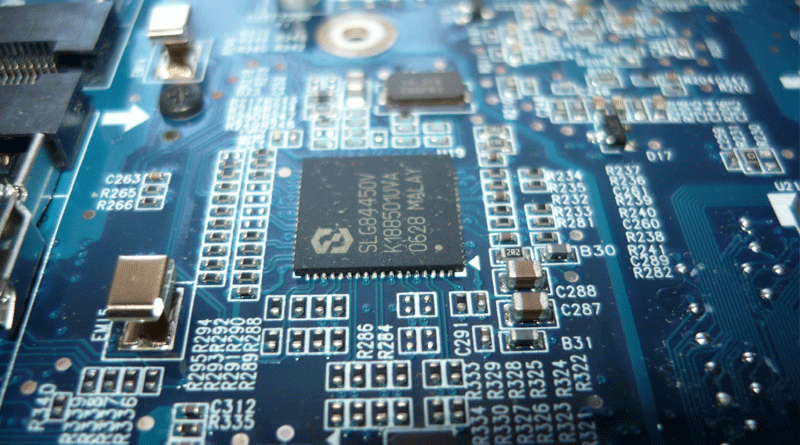What is Electronics and Telecommunications Engineering:
what is B Tech in Electronics and Telecommunications Engineering– B Tech Stands for Bachelor of Technology in Electronics and Telecommunication Engineering. Typically, B Tech.(Electronics and Telecommunication Engineering) is a four year long course, minimum eligibility 12th class with physics, maths, computers and chemistry. Electronics and Telecommunication Engineering is divided into different elements like analog & digital transmission, satellite communication, voice, video, data reception, electronics, microprocessors and analog integrated circuits. Subjects in Btech degree are Embedded system, digital Signal processing, digital systems,Microprocessors, VHDL and VLSI, Fuzzy logic and neural networks, digital communication, & micro controllers and microwaves.There would be no mobile phones, internet, TV or radio without Electronics and Tele Communications Engineer.Telecommunication systems are very important elements in modern society.
This objective statement emphasizes the principle difference between electronics and telecommunication engineering (E&TE) and electronics engineering: E&TE focuses on the theory and design of hardware for telecommunication systems, while electronics engineers are trained with a broader focus with respect to electronic devices and systems. The special attention to electronics for telecommunication systems is due to both the demand for engineers in the growing telecommunications industry as well as the complexity of Radio Frequency (RF), satellite, optical, and wired data communication systems.
A more general education in electronics engineering includes learning the design and construction of analog and digital electronic circuits. An electronics engineer is qualified for jobs that include building electronic components for integration into larger systems, Integrated Circuit (IC) design work, board layout, programming micro-controllers and microprocessors, and field testing. It is important to note that many electronics engineers have the background required to enter the telecommunication field.
Both Electronics Engineering and E&TE provide engineers with a background that will lead to a rewarding occupation. The salary for engineers in these areas seem to be roughly equivalent, although the telecommunications positions tend to be slightly higher. You should base your decision about which degree to pursue on your own interests. Looking at the job descriptions posted by companies seeking electronics engineers and telecommunications engineers will also provide you with a better idea of the background required and the type of work you will do, as well as an idea of the salaries you can expect.
Another hugely popular branch of engineering, it deals with how different electrical components communicates with each other and software interfaces.Have you ever wondered how a small cellphone keeps you in touch with those far away from you or how are you able to know about various events happening all around just with a single click? The answer is electronics and communication engineering.In this branch students learn about electric equipment like TV, radio, transistors, mobiles, laptops and communication devices such as receiver, IC, transmitter etc which has brought the world a lot closer to each other.It gives us the access to communication through various modern technology.It is also concerned with satellite communication, analog and digital transmission.It applies the concepts of mathematics and science to solve the problems in communication.This discipline also explores other branches of engineering such as civil and electrical engineering.In fact it owes its origin to electrical engineering.The applications of electronics and communication engineering ranges from our households to industries.It requires the understanding of various concepts like power electronics, VLSI, digital electronics,signals and systems etc.With the demand for new and innovative methods to communicate on the rise, telecommunication sector has become a vital element in this field.
What does an Electronics and Communication Engineer do?
You can work in different fields doing different jobs after doing this course.An Electronics and Communication engineer designs and develops electronics devices like tv, radio etc and are also responsible for their proper functioning.They also design and maintain satellites which enables the transmission of signals through various devices.They also create programs for various communication systems.It is the result of ECE engineers that we are able to witness and live with jaw dropping technology.
Research and testing of equipment also forms a vital part of their work.Their basic work is to develop new devices and update existing technology.They can improve the functioning of electronic devices.They are also expected to control production process and to ensure safety of various systems.Developing programs for communication system also comes under their area of work.
They are also meant to prepare presentations, provide technical support, undertake site surveys, writing reports and discussing and monitor project development.
Academic programs in B.Tech in Electronics and Communication Engineering Colleges:
It is a four year long undergraduate program, usually comprised of eight semesters. Duration of each semester is about six months.Academic sessions include both theory and practical sessions.Colleges also provide internships to students in order to give them the insights of industry and to make them ready for jobs before they finish their degree.
It specializes in fields such as wireless and optical communications, digital system design, radio television systems, signal processing, consumer electronics, analog and digital electronics, embedded systems etc.An ECE student starts with basic concepts of engineering along with physics, chemistry and mathematics and as they keep digging deep into their course they get to know about various other concepts of communication.
A few of the subjects which students goes through while pursuing ECE are:
- Calculus
- Elements of Electrical Engineering
- Engineering Graphics
- Integrated Circuits and Applications
- Electronics Devices and Circuits
- Communication Systems
- Data Communication and Networking
- Fiber Optic Communication
- Error Control Coding
- Analog Integrated Circuit Design
- Digital Integrated Circuit Design
The eligibility requirement to become an Electronics and Telecommunications Engineer :
What it takes to become an Electronics and Telecommunications Engineer?
For admission in a Electronics and Telecommunications Engineering bachelor’s degree, the candidate must have passed the higher secondary school certificate (10+2) examination with science subject such as biology, maths and chemistry. For IITs, It is mandatory to qualify in the Joint Entrance Examinations (J.E.E). The duration for the course is 4 years.
The basic eligibility criteria for mechanical engineering is that a candidate must have cleared his/her class 12th examination in science stream with PCM (Physics Chemistry Maths) as main subjects.
An aggregate of at least 50% in these subjects is commonly required in most colleges to apply for this course.Along with this selection is also made through various state and national level entrance exams.
One can also do a diploma in Electronics and Telecommunications engineering.For doing a diploma in ECE the basic qualification is 10th class with atleast 50% marks.Duration of diploma course is usually 3 years.
NOTE- Eligibility criteria marks may differ depending upon different institutions.
Academic Paths of Electronics and Telecommunications engineering :
Various institutes offer degree in Electrical and communication engineering from bachelor(B.Tech) to Doctoral(Phd) level.
- Diploma courses in Polytechnic Institutes of 3 years duration.
- Under Graduate courses in B.Tech (Bachelor of Technology)- 4 years.
- Post Graduate courses in M.Tech (Master of Technology)-2 years.
- Phd (Doctor of Philosophy)- It leads to research field.
How to become a Electronics and Telecommunications Engineer and career path:
STEP 1– ENTRANCE TEST
If you want to enroll into a good engineering college then you must appear for various state level and national entrance exams for engineers like JEE main, AIEEE, AICET etc.Scores achieved in these entrance exams play an important role in getting a good college. So one must take these exams seriously.
STEP 2- CHOOSE A GOOD COLLEGE to pursue your B.Tech in Electronics and communication engineering
One must try to get into a reputed college as it increases the chances of getting high salary package after the completion of degree.
STEP 3–GET CERTIFIED (optional)
If you want to enhance your career and take on public projects than you can become certified (professional engineer PE) by giving fundamental engineering exam conducted by state licensing boards.Working experience of at least 4 years is required to become a professional engineer.It opens new doors of opportunities as an engineer and take you to next level.
Entrance Exams for B.Tech in Electronics and Communication Engineering:
- Joint Entrance Examination (JEE) Advanced
- AIEEE :- All India Engineering Entrance Examination
- VIT University Engineering Entrance Exam (VITEEE)
- BITSAT
- BIHER: Bharath University Engineering Entrance Exam.
- AICET: All India Common Entrance Test.
- DCE CEE: Delhi College of Engineering Combined Entrance Exam.
- TNEA
- Punjab CET
- IPU CET
M.Tech in Electronics and Telecommunications Engineering :-
In order to pursue for Masters degree in ECE one must have cleared B.Tech in the same from a recognized university.It is must for those who are looking to enter the field of teaching.
M.Tech in Electronics and Telecommunications Engineering :-
- Graduate Aptitude Test in Engineering (GATE)
- Graduate Aptitude Test in Engineering (GATE)
- Post-Graduate Engineering Common Entrance Test (PGECET)
- TANCET (Tamil Nadu Common Entrance Test)
Top Electronics and Communication Engineering Schools/Colleges in India
- Indian Institute of Technology, (IIT Kharagpur)
- Indian Institute of Technology, IIT-BHU
- Indian Institute of Technology, Guwahati (IITG)
- Indian Institute of Technology Roorkee (IIT Roorkee)
- International Institute of Information Technology, Hyderabad (IIIT-H)
- Indian Institute of Information Technology, Allahabad
- National Institute of Technology, Tiruchirappalli
- National Institute of Technology, Rourkela
- National Institute of Technology, Surathkal
- National Institute of Technology, Warangal (NIT, Warangal)
- Birla Institute of Technology and Science (BITS-Pilani)
- Netaji Subhas Institute of Technology (NSIT)
- Delhi Technological University (DTU)
- Indian School of Mines (ISM)
- R.V.College of Engineering
- VIT University (VIT)
- Anna University (AU Chennai)
- College of Engineering Pune (CoEP)
- SRM University, Chennai (SRM Chennai)
- Thapar University (TU Patiala)
- Sardar Vallabhbhai National Institute of Technology
- Coimbatore Institute of Technology (CIT)
- BMS College of Engineering (BMSCE)
- Motilal Nehru National Institute of Technology (MNNIT)
- National Institute of Technology (NIT Kurukshetra)
- Cochin University of Science and Technology (CUSAT)
- Jawaharlal Nehru Technological University (JNTU Kakinada)
- College of Engineering, Trivandrum (CET Trivandrum)
- PES Institute of Technology
- Guru Nanak Dev Engineering College
- Jaypee Institute of Information Technology
- KLE Dr. M S Sheshgiri College of Engineering and Technolog
- Sir M Visvesvaraya Institute of Technology
- Maharaja Agrasen Institute of Technology (MAIT)
- Gandhi Institute of Technology and Management (GITAM) University
Career Prospects in Electronics and Communication Engineering- Different working fields and job profiles
ECE offers one of the best carrier prospects to students both in public and private sector.The scope here is unlimited as one may find endless jobs in different working fields.ECE graduates can find work in several departments such as manufacturing, broadcasting, aviation, railways, telecommunication, IT, electronic media, consumer electronics, power electronics,data communication, steel industry, petroleum industry, defence etc.They may also find themselves in medical and aeronautical field.Post and telegraph sector too have lots of jobs for them.
Especially in telecom market there is a huge scope for ECE graduates owing its demand to the ever increasing telecom users in the world.
JOB PROFILES
- Software Analyst
- Network Planning Engineer
- Telecommunications Engineering Specialist
- Research & Development Software Engineer
- Technical Director
- Electronics and Communications Consultant
- Electronics Engineer
- Electro mechanical Engineering Technologist
- Field Test Engineer
Top Recruiters
- Intel
- Samsung
- TCS
- HCL Technologies
- nVIDIA
- ISRO
- BHEL
- Infosys
- Accenture
- Wipro
- nVIDIA
- DRDO
- CISCO
- Electronics Corporation of India Limited (ECIL)
- Toshiba
- LG Electronics
- IBM
- MTNL
Salary Packages after Electronics and Communication Engineering Courses:
This is one of the best paying branch of engineering. A fresher can expect salary between Rs 15000-Rs 20000 per month.However with 3-4 years of experience one can easily fetch over 40,000 per month.
However if you have done your engineering from a reputed college and get job through campus placement then you can expect starting salary of around Rs 3 lakh- Rs 4 lakh annualy. Graduates from IITs can get starting salary of even around Rs 10 lakh annualy.




